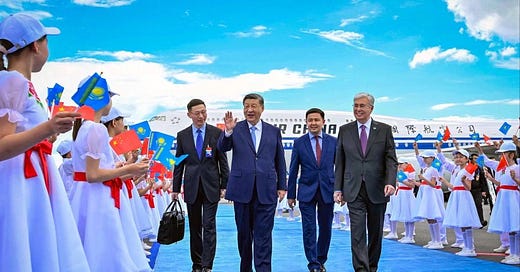Xi Jinping Visit to Kazakhstan a Light for Development
Major agreements signed in energy, aerospace, digitalisation, customs regulation, agriculture, e-commerce, intellectual property, health, mass media, science, tourism and communication.
Featured contributor Prof. Josef Mahoney joined CGTN America to discuss President Xi's visit to #kazakhstan and summits with Central Asian leaders and the geostrategic contexts.
A number of major agreements were signed, expanding cooperation in energy, aerospace, digitalisation, customs regulation, agriculture, e-commerce, intellectual property, health,…





